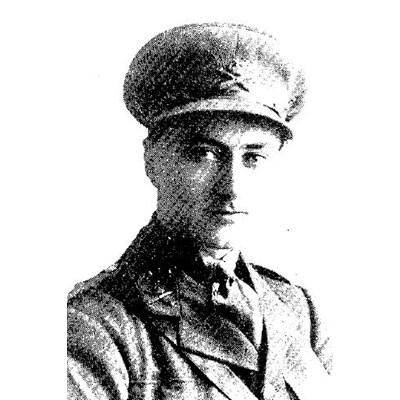Mollison, William Allan (1896 - 1918)

Lieutenant, Duke of Wellington's (West Riding Regiment)
Buried at Terlincthun British Cemetery
Commemorated at Hillhead High School
Lieutenant William Allan Mollison was the elder son of Mr. and Mrs. John Mollison, 6 Kelvin Drive, Glasgow, and was born in 1896. He was educated at Hillhead High School, the Royal Technical College, and the School of Art. While at School he was an active member of the O. T. C., but a severe illness contracted at one of the annual inspections terminated his connection and interrupted his School
work for a time.
On leaving School he entered the office of Mr. Goff Gillespie, architect, as an apprentice. In 1914 he was one of the first to answer his country's call, and enlisted in the Glasgow Highlanders. In June, 1915, he was transferred to a Cadet battalion, and after a period of training was posted to the Duke of Wellington's (West Riding Regiment).
In September of the same year he volunteered for France, and was for several months in the trenches near Ypres. The hardships of that winter will never be forgotten by those who came through it. The whole line was constantly under water, and officers and men had to fight, work, and sleep under almost inconceivable conditions. There Allan Mollison contracted rheumatic fever, and was invalided home.
After a term of light duty in this country he returned to France in May of 1916. He took part in the terrific fighting that marked the early stages of the Battle of the Somme. During these trying days his good work attracted the notice of his commanding officer, and he was promoted adjutant.
Winter conditions caused a recurrence of his old trouble, and he was again invalided home. On his recovery he was advised to transfer to the Machine Gun Corps in order to keep out of the trenches. In this new branch he proved himself so efficient that he was retained for four months as an instructor.
In January, 1918, he went to Palestine, but in March returned to France with the 52nd Division. There he experienced some of the hardest fighting of the war, and was continuously in action for weeks on end. He was intensely proud of the example set by his men. Writing home he says, "My men are simply splendid. I am so proud of them; they did such fine work when we went over the top."
On the 13th September, when just about to come out of action, he was severely wounded in several places by a shell. There seemed good hopes of his recovery, but septic poisoning set in, and he passed away in the hospital at Wimereux on the 1st October.
According to the testimony of all his comrades, he was a most gallant soldier, greatly beloved by his men, and possessing the full confidence of his seniors. His colonel writes, "His men thought a tremendous lot of him. In action he was always in the best of spirits, and led his men with great dash, and seemed so proud of them. I always considered him one of my best officers, and after his behaviour in the recent successful operations placed him as my best section officer. I have brought him to the notice of my seniors, and hope his gallant conduct will be rewarded."
The School will ever cherish the memory of this devoted, unselfish, heroic spirit.




